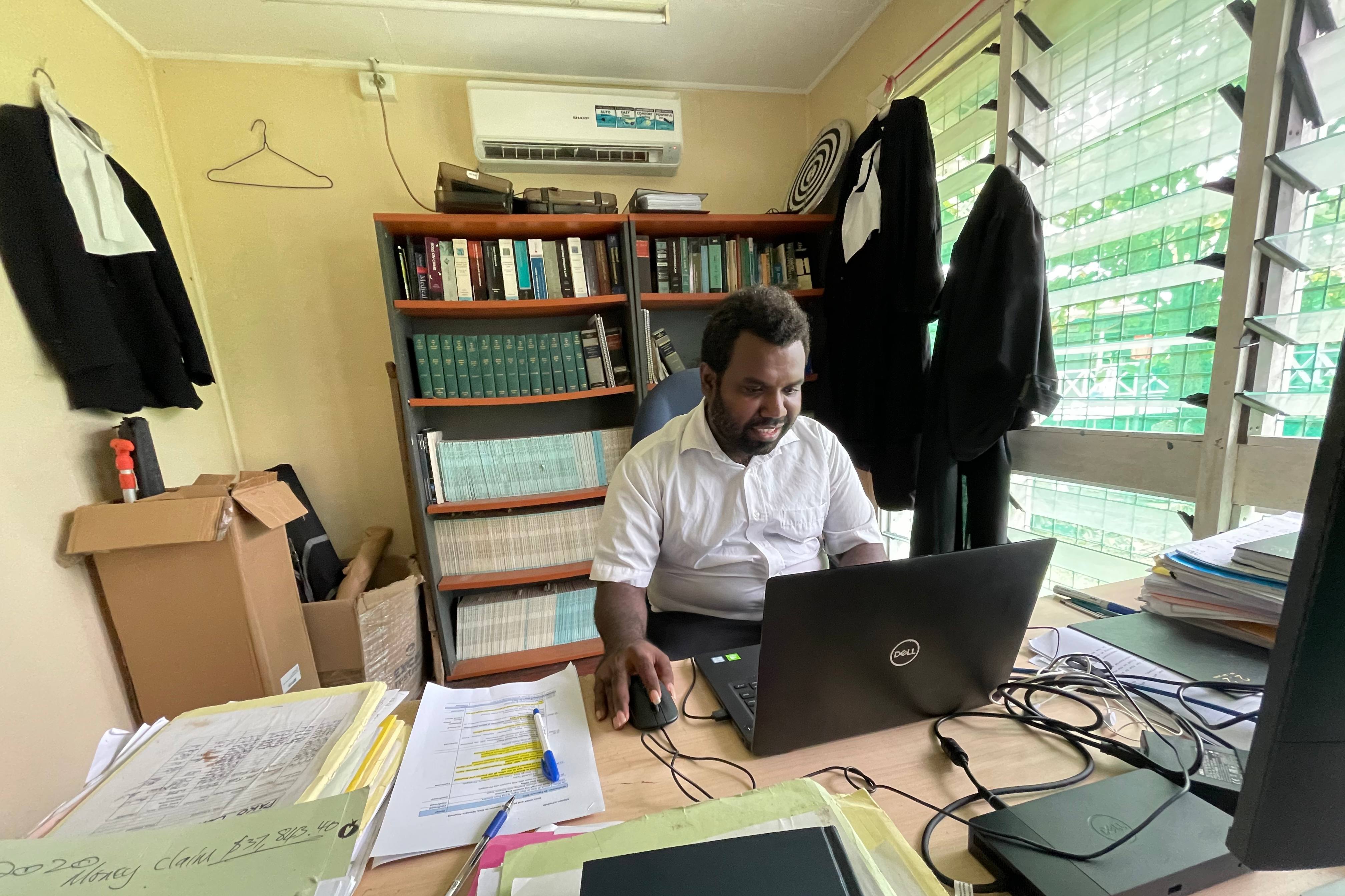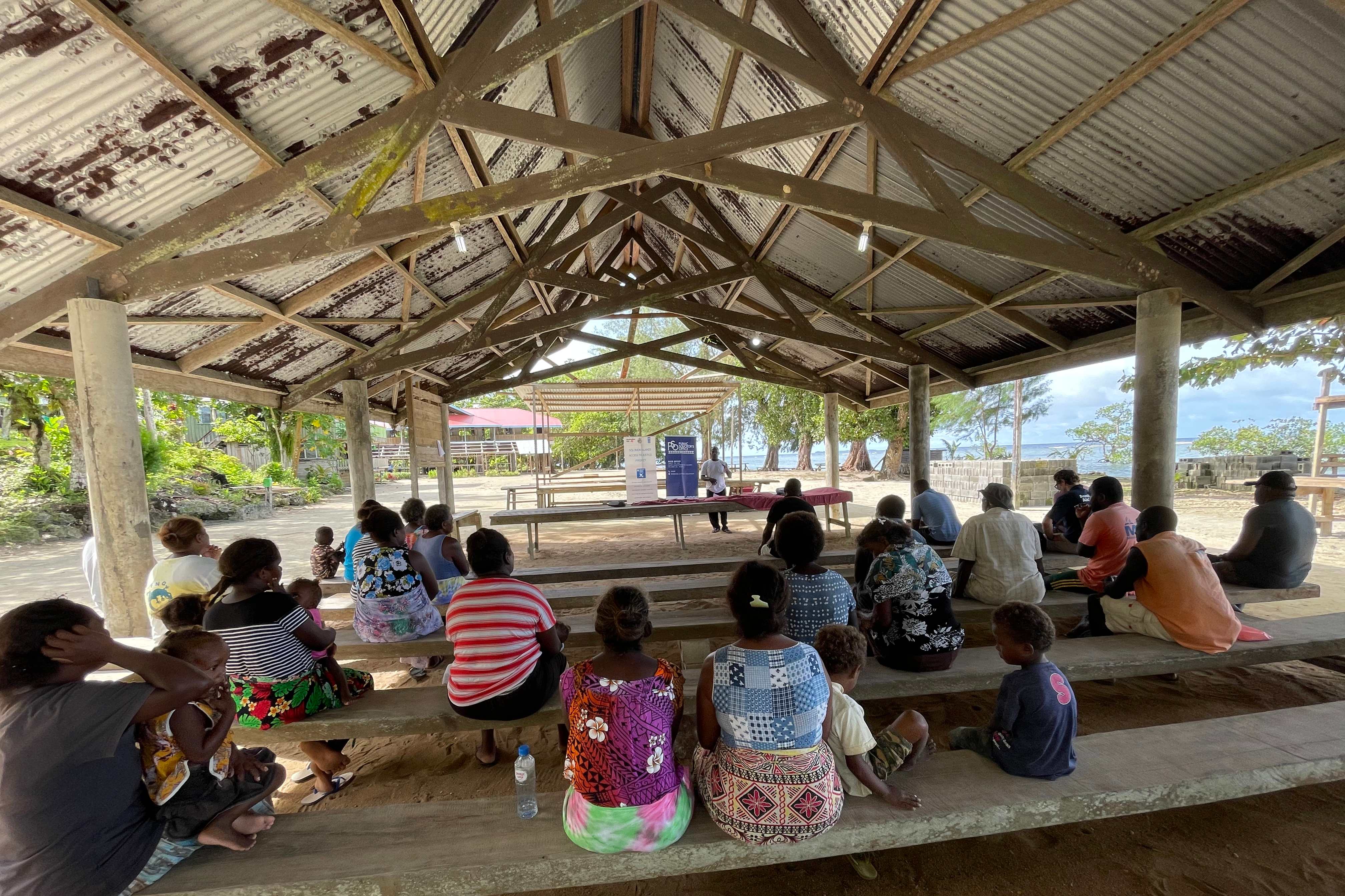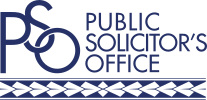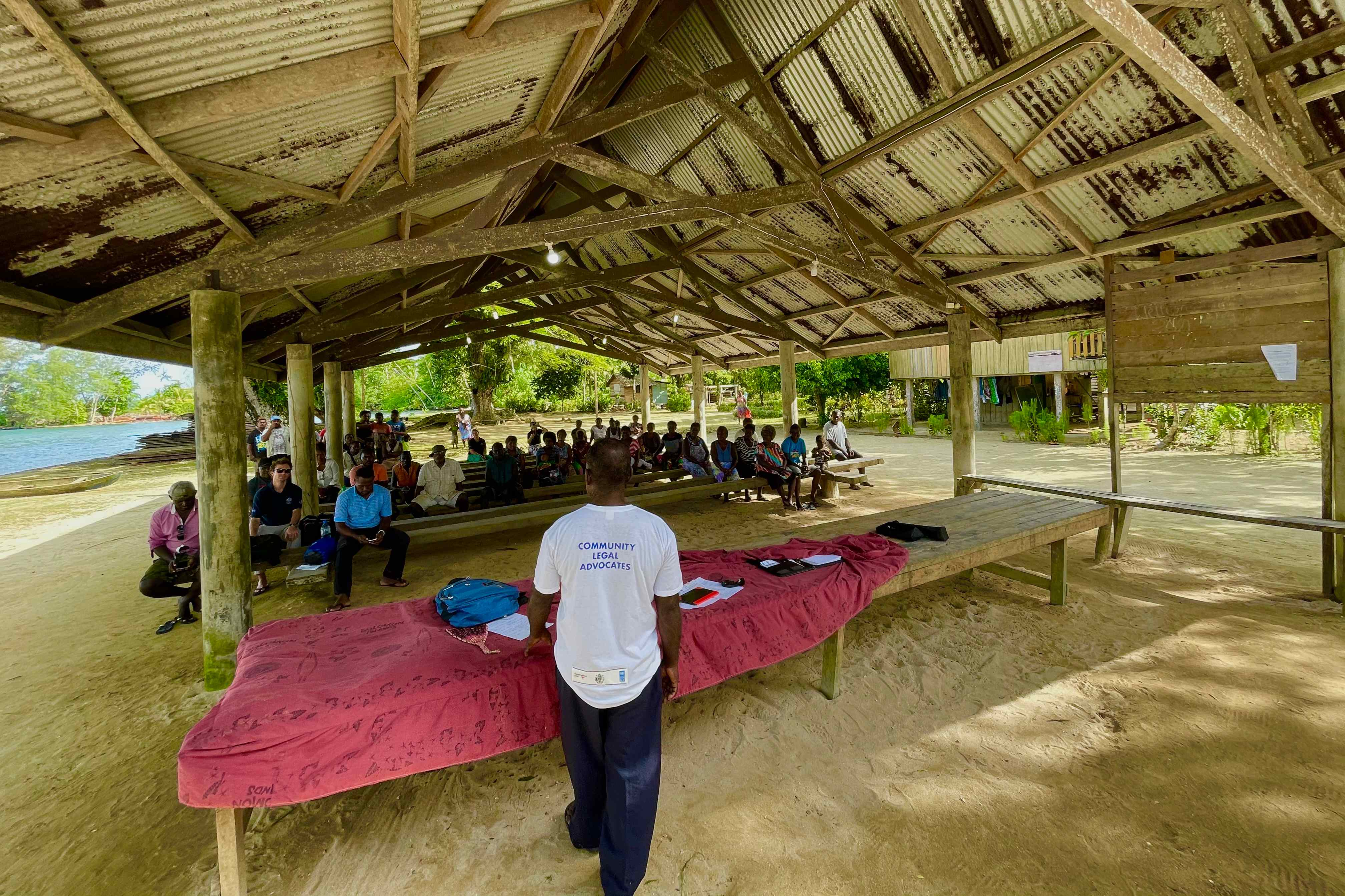Julia (not her real name) has been a widow for over ten years. She lives in Malaita with her daughter. She fondly remembers her husband of 20 years as a caring and loving family man. After the loss of her husband, she devoted all her time to raising their daughter, who has a speech impairment.
It was only when she took on the mantel as the head of the household that her in-laws began to interfere in her life. It started with just regular check-ins, for example, “What are you doing today? Why did you not attend this family meeting? Initially, she did not let these comments and interferences unsettle her. However, most recently, her in-laws took it upon themselves to remove her daughter from her care. Julia felt like she lost a connection to her late husband and like any other parent who has had their child removed from them, it was as if her world had come to an end. Distraught and feeling completely unaware of her options, legal or otherwise, Julia was convinced that as a woman, she had completely lost the opportunity to have her daughter back in her arms and under her care.
Widows like Julia, represent six-percent of the population[1], and most of whom are over the age of 49, according to the 2015 demographic and health survey for Solomon Islands.
Most legal issues in remote communities are often handled by traditional means via chiefs and/or church leaders. However, a 2019 Access to Justice Study undertaken by the United Nations Development Programme (UNDP), found that community leaders are perceived to be the most effective justice institution. It is not surprising to note that 72 percent of those who found this means effective, were men. While women are disproportionately impacted by this justice service, widows with no other support system in place would face an even greater challenge. Similarly, the challenge for people with disabilities is just as difficult due do a range of barriers including accessibility.
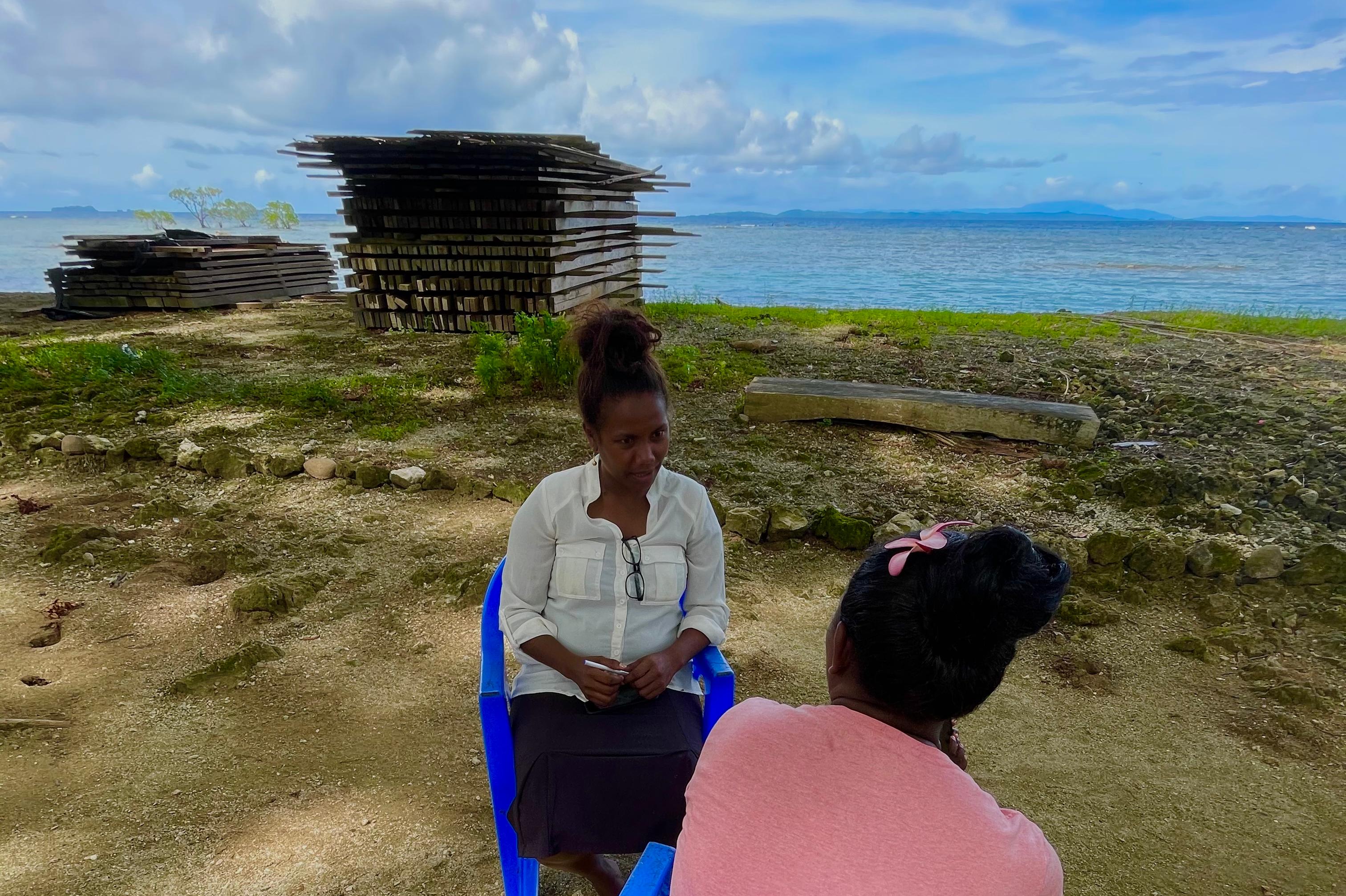
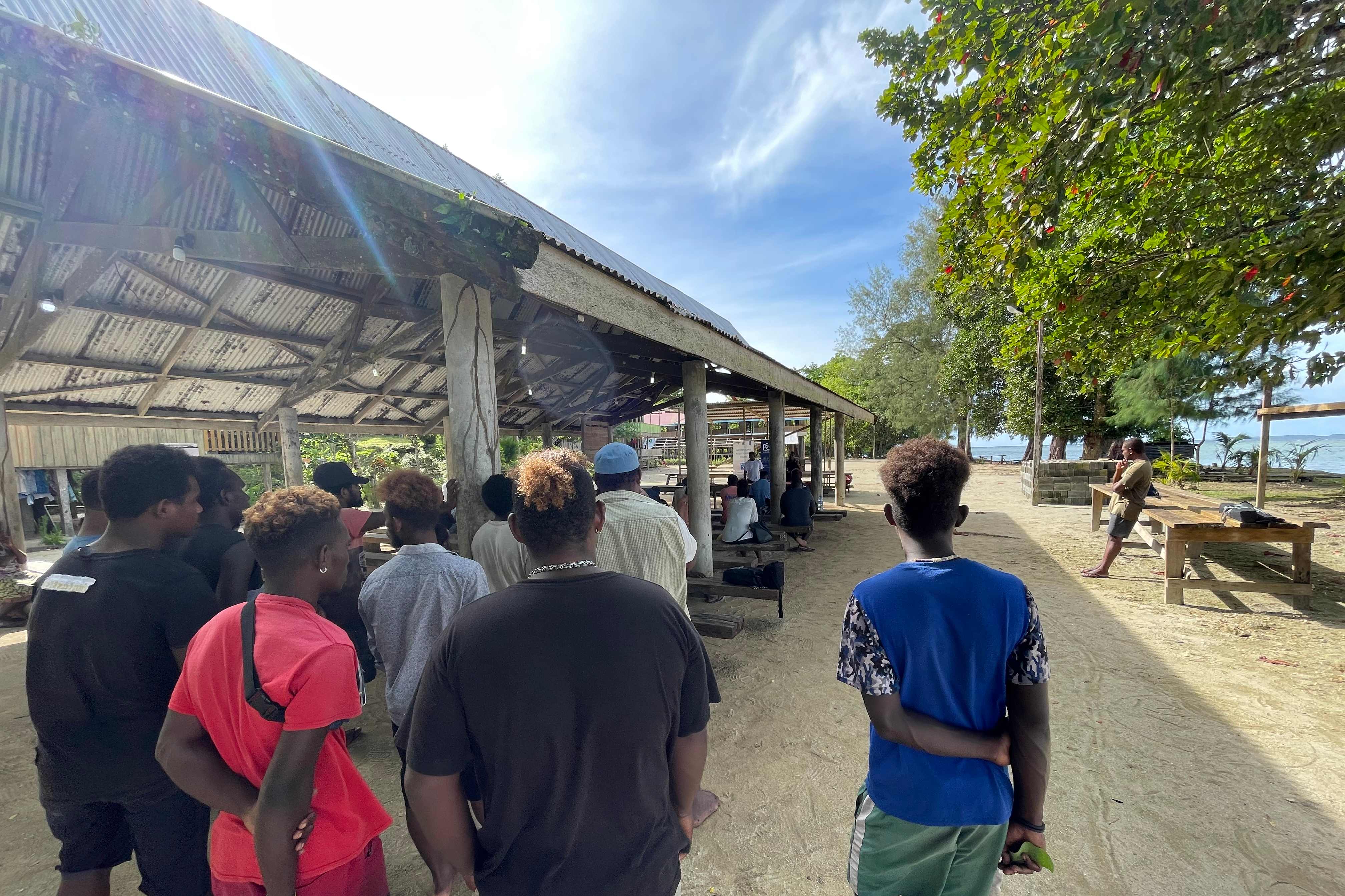
The remote struggle
Limited access to the formal justice sector in Solomon Islands remains a major development challenge for its 721,000 citizens. Scattered settlement coupled with political and administrative centralization since the 1990s, has led to the reduced presence of formal government agencies in the provinces. In addition, low awareness of justice options and associated high costs have made accessing justice instiutions like the police and courts difficult for communities. It is a very common saying by Solomon Islanders that the cost of travelling from one province to the capital Honiara or other provinces is equivalent to that of an international flight. This cost does not include accommodation, meals, and emergency funds. A stark contrast for someone living in the urban areas who can either walk or use a well-established public transport system that costs SB$10 (US$1.24) compared to a SB$5,301 (US$663) flight. These associated costs are even more pronounced for someone on the national minimum wage of SB $8 (US$1) per hour. It is not difficult to understand the lack of incentive to access the formal justice system for remote communities and the hopelessness felt for someone in Julia’s situation.
Customary methods of justice through conflict resolution undertaken by community leaders, village chiefs, and church leaders are most often effective for men. The UNDP A2J study found that most community leaders are perceived as the most effective justice institution in Solomon Islands due to their accessibility (90%) and their ability to resolve disputes “well” (82%).
The survey revealed that men report crimes, domestic violence or land issues first to a village chief (42%), while women would go first to the Police (53%), followed by family (7.2%) and church leaders (6.9%).
Police figured prominently for women (46%) compared to men (26%) when it came to reporting domestic violence cases. Thus, confirming the justice profile for Solomon Islands as largely characterized by the parallel existence of formal and customary systems, but one that still favours men while disproportionately affecting women’s access and other marginalized groups like people with disabilities.
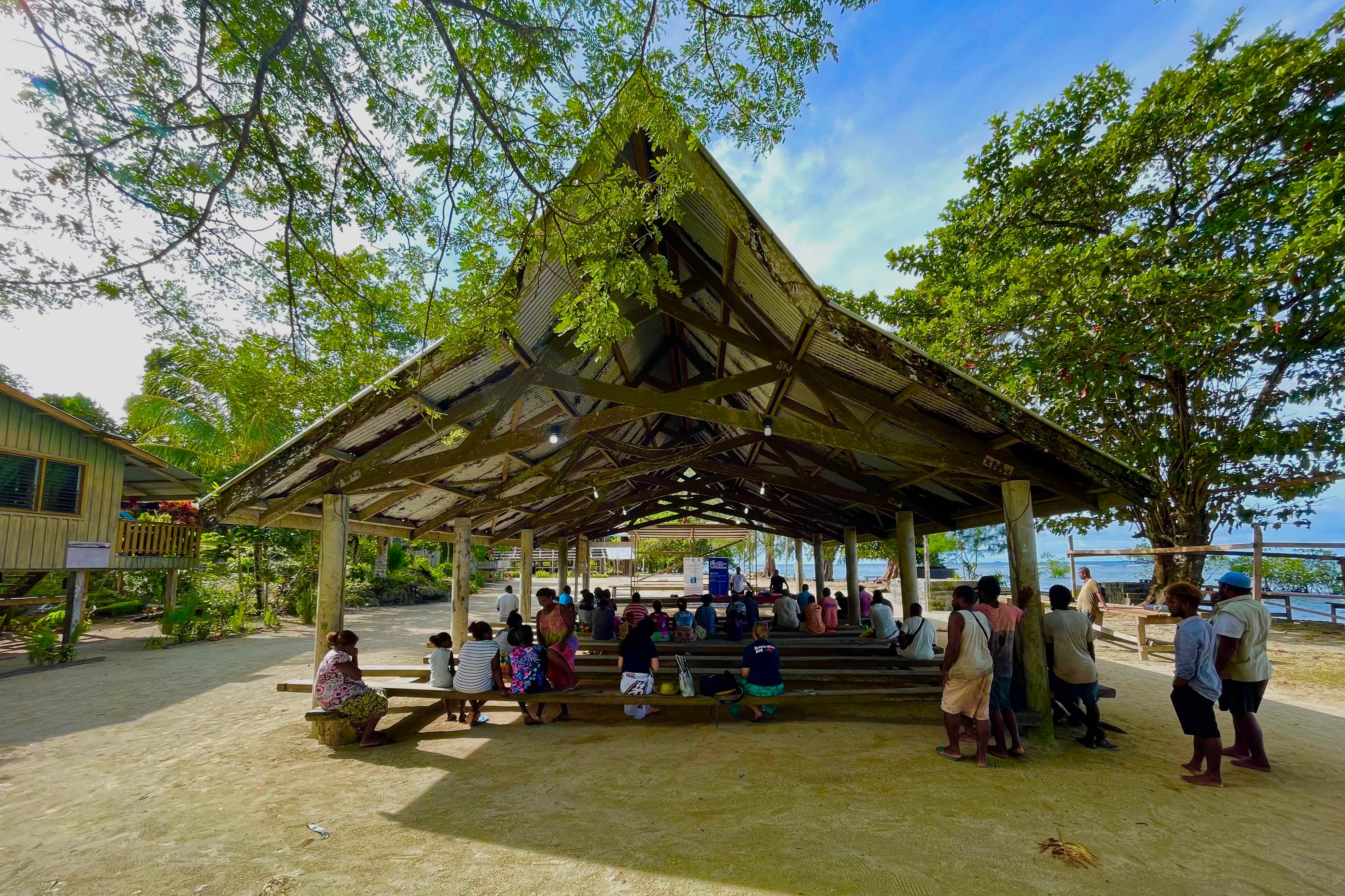
Access to Justice in Context
Access to justice has been guaranteed as a basic human right under International law. Yet, for groups or individuals like Julia, the reality is very different. The Government of Solomon Islands, identifies access to justice services as a key priority area in its Justice Sector Strategic Framework (2014-2020).
In the Framework, the Solomon Islands Government is tasked with ensuring access to justice services for the wider Solomon Islands communities, including the rural population. UNDP with support from the Australian Government is capitalizing on this initiative through its Access to Justice Project implemented through a two-tiered paralegal initiative, namely Provincial Paralegals and the Community Legal Advocates (CLAs).
Working with the Public Solicitor’s Office (PSO), as the mandated position and head of the core client-facing access to justice institution for the Ministry of Justice and Legal Services, CLAs close the social justice gap through community awareness sessions and referrals to the PSO.
The PSO provides free legal assistance to financially disadvantaged persons in criminal, civil, family and land matters. Fortunately for Julia, all is not lost. Through attending one of the community awareness sessions facilitated by a Community Legal Advocate, she was referred to the PSO legal team who will now take up her case through the formal judicial system. In addition, she has gained an understanding of her rights and how to access the justice system.
Julia is one of 7,551 people (3,857 women and 3,694 men) that benefited from community awareness sessions about legal avenues available to communities delivered by CLAs in 2020.
Speaking in Pidgin, Julia lamented, “I just want my baby back and I don’t want anyone else to go through the same experience I did.”
“Through the community awareness sessions, I was able to differentiate what issues can be brought to the formal legal system and what issues can be settled through traditional means.” She added, “I feel more comfortable accessing the service provided by the PSO.”
Julia’s case is one of a myriad of challenges faced by people in remote areas with limited access to legal information. Through the CLAs, the knowledge and means to access justice is brought directly to the people in their comunties, enhancing confidence in the justice system for a more peaceful and responsive society.
